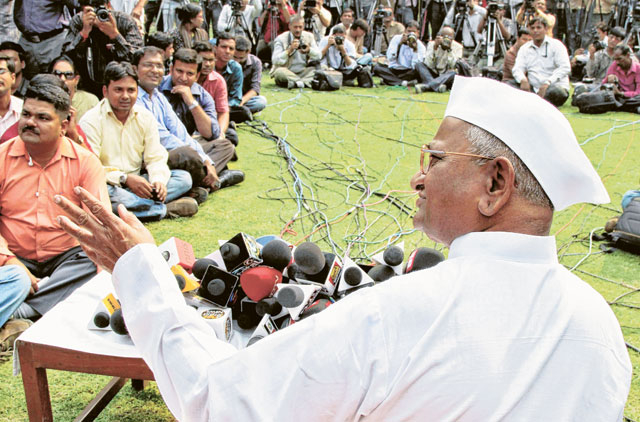
Mumbai: Police in Delhi are searching for the sender of an anonymous letter that threatened to inject anti-corruption activist Anna Hazare and his supporters with needles tainted with the HIV virus.
Not taking any chances, the police have likewise filed a first person report (FIR). The threatening letter was sent recently to the Delhi Police central office.
Reacting to the incident, doctors said the letter only shows that some people believe such "myth" on how the deadly virus is spread.
The letter threatened to harm the anti-corruption activist if he continues to remain stubborn over his plans to lobby for the passage of the Lokpal (citizen's ombudsman) bill. It claimed that a team has prepared 500 HIV contaminated needles which will be injected to at least 1,000 people attending Hazare's demonstration.
The Aids Society of India, a professional body of doctors and researchers in HIV care, and the People's Health Organisation (PHO), a non-government organisation advocating Aids control, condemned "such misinformation campaigns generated in national and international media".
‘Unfounded theories'
Such news, in the absence of any authentic backing from the scientific community, "reinforces the myths among people and propagates several unfounded theories on the spread of HIV through casual contact, needles, eatables and water," Dr Ishwar Gilada of PHO said.
"Health education is very important and simplified scientific information is the only key to prevent Aids."
For one who has worked in the field of Aids control and care for decades, Gilada said: "Let us once again reaffirm that it is difficult to contract HIV as the virus does not survive outside human body for long. The virus dies as soon as the blood dries up. HIV contaminated blood supposedly used for pricks like the ones described do not pose any real risk of transmission."
There is not a single documented case of HIV infection anywhere in the world to prove such "weird transmission," he says and adds, "What people should realise is that transfusion of infected blood is different from a mere prick."
Gilada also feels that filing FIRs is a waste of energy and manpower.













